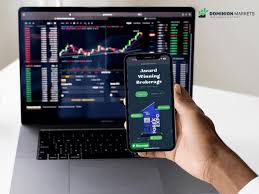
Understanding Forex Trading Licenses: A Comprehensive Guide
In the ever-evolving landscape of financial markets, forex trading license trading-cambodia.com, particularly in the realm of forex trading, securing a proper license is crucial for maintaining credibility and ensuring compliance with legal standards. This article delves into the significance, types, processes, and considerations surrounding forex trading licenses.
What is a Forex Trading License?
A forex trading license is a legal authorization allowing individuals or companies to engage in forex trading activities. This license ensures that the trading entity adheres to regulatory standards, thus fostering trust among clients and investors. Regulatory bodies impose these standards to protect market integrity, reduce fraud, and ensure fair trading practices.
Importance of a Forex Trading License
Obtaining a forex trading license provides several advantages:
- Legitimacy: A license establishes a firm’s legitimacy and builds trust with clients.
- Regulatory Compliance: Licensed firms adhere to regulatory standards that protect investors and maintain market integrity.
- Access to Global Markets: Many jurisdictions require a license for forex trading, making it essential for firms to operate within legal parameters.
- Investor Protection: Regulatory bodies often have guidelines in place to protect client funds and interests, enhancing safety in trading.
Types of Forex Trading Licenses
Forex trading licenses differ by region and jurisdiction, each with specific requirements and frameworks. Here are the primary types of licenses:
- Retail Forex License: This license is typically required for firms dealing directly with retail clients. It is often regulated by national financial authorities.
- Institutional Forex License: Designed for firms trading in large volumes on behalf of institutional clients, this license often has more stringent requirements.
- Offshore Forex License: Many brokers opt for offshore licenses due to lower costs and fewer regulatory burdens. However, these licenses may lack the credibility associated with well-established jurisdictions.
How to Obtain a Forex Trading License

The process of obtaining a forex trading license can be complex and varies significantly depending on the jurisdiction. Here’s a general overview of the steps involved:
- Choose a Jurisdiction: Research various jurisdictions to find one that fits your business strategy and entails a suitable regulatory framework.
- Prepare Required Documentation: This usually includes a comprehensive business plan, proof of funds, compliance procedures, and personal identification of directors and major shareholders.
- Submit Application: Fill out the application form as per the chosen jurisdiction’s requirements and submit it along with the necessary documents.
- Regulatory Review: Once the application is submitted, the regulatory body will review the documentation. This may involve background checks and an assessment of compliance procedures.
- Receive License: Upon approval, you will be granted a license, allowing you to legally operate as a forex trading entity.
Costs Involved in Obtaining a Forex Trading License
The costs associated with obtaining a forex trading license can vary widely based on the jurisdiction, type of license, and specific business model. Common expenses include:
- Application Fees: These can range from a few hundred to several thousand dollars, depending on the regulatory authority.
- Legal and Consulting Fees: Hiring legal experts or consultants to assist with the application can also add to costs, often amounting to thousands of dollars.
- Capital Requirements: Many jurisdictions have minimum capital requirements that must be maintained, which can be a considerable investment.
- Annual Renewal Fees: Licenses typically need to be renewed annually, which requires payment of renewal fees and submission of updated documentation.
Challenges in Acquiring a Forex Trading License
While obtaining a forex trading license is beneficial, the process can be fraught with challenges. These challenges may include:
- Stringent Regulations: Many countries have rigorous requirements that can be demanding for new businesses.
- Time-Consuming Process: The review and approval process can take several months or even years, which may delay your trading activities.
- Cost Implications: The financial burden of obtaining a license can be substantial, particularly for startups.
Ongoing Compliance and Regulation
Once a forex trading license is obtained, the responsibility for ongoing compliance remains with the licensed entity. Regulatory bodies require routine audits, financial reporting, and adherence to specified trading practices. Non-compliance can result in penalties, including the revocation of the license, thus stressing the importance of strict adherence to regulatory frameworks.
Conclusion
In summary, acquiring a forex trading license is a critical step for anyone looking to engage in forex trading, whether as a retail trader or a corporate entity. The benefits of legitimacy, client trust, and regulatory compliance cannot be overstated. While the process involves challenges and costs, the long-term advantages of operating legally within the financial markets far outweigh the initial hurdles. By understanding the requirements and preparing thoroughly, aspiring forex traders can navigate the licensing process effectively, paving the way for a successful trading operation.
